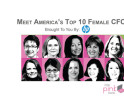
Welcome to the Zero Club

This is not a list of distinction: the 59 largest companies in America with no women on their boards.
By James Burroughs
For the first one or two, you smirk and shake your head. By the 20th, you’re muttering to yourself in disbelief. Once you’ve seen the smiling pictures of 59 all-male (and mostly white) boards of directors among America’s largest companies, displayed proudly on websites and in annual reports, you feel a little sick. Haven’t we as a nation of astute businesspeople progressed farther than this?
Apparently not. The 2008 Catalyst Census of Women Board Directors of the Fortune 500 recently showed little improvement in women’s share of board seats: 15.2 percent in 2008, up from 14.8 percent the year before. Women of color hold just 3.2 percent. “No change in a year of change is unacceptable,” lamented Catalyst President and CEO Ilene Lang.
Perhaps more disappointing, though, is the uptick in the number of companies with zero women directors, from 59 in 2007 to 66 in the most recent survey. An eye-popping 318 companies in the Top 500 have no women of color on their boards.
The list that follows, based on Catalyst’s study, presents in alphabetical order the 59 companies that remain in the zero club. (Since Catalyst compiled its list, two have been swallowed up in the financial crisis, and five have added at least one woman to their boards.) Half of the companies, not surprisingly, are in manufacturing, mining or construction — traditionally male-dominated industries.
But household products? Jarden Corp., the $4.6 billion purveyor of such well-known brands as Crock-Pot, Mr. Coffee, Oster and Sunbeam, has no women on its board, despite the fact that women consumers dominate those product categories. A spokesperson for Jarden declined our request for an explanation.
Why is having women in the boardroom so important? According to other Catalyst research, a higher percentage of women directors translates directly into more women corporate officers in line positions. And companies with more women directors, on average, financially outperform companies with fewer. That fact alone, in recessionary times, would seem to be a compelling argument for giving one’s board a much-needed infusion of smart women — and quick.
Let’s see if these 59 get the message in the year ahead.
Affiliated Computer Services Inc.
Agco Corp.
Aleris International Inc.
Allied Waste Industries Inc.*
Alltel Corp.†
Aramark Corp.
Autoliv Inc.
Auto-owners Insurance Group
Bj Services Co.
Boise Cascade Llc
Cameron International Corp.
Chesapeake Energy Corp.
Chs Inc.
Dana Holding Corp.
Delphi Corp.
Dollar General Corp.
D.R. Horton Inc.
Emcor Group Inc.
Energy Transfer Equity Lp
Expeditors International Of Washington Inc.
Federal-mogul Corp.
Fidelity National Financial Inc.
Fidelity National Information Services Inc.
First Data Corp.
Frontier Oil Corp.
Global Partners Lp
Gmac Financial Services
The Hershey Co.
Hertz Global Holdings Inc.
Hexion Specialty Chemicals Inc.
Holly Corp.
Hospital Corporation Of America Inc.
Hovnanian Enterprises Inc.
Jarden Corp.
Kbr Inc.
Knight Inc.
L-3 Communications Corp.
Land O’lakes Inc.
Lear Corp.
Liberty Global Inc.
Liberty Media Corp.
National Oilwell Varco Inc.
Nvr Inc.
Peter Kiewit Sons’ Inc.
Plains All American Pipeline Lp
Precision Castparts Corp.
Reliance Steel & Aluminum Co.
Robert Half International Inc.
The Shaw Group Inc.
Smith International Inc.
Sonic Automotive Inc.
Synnex Corp.
Targa Resources Inc.
Tesoro Corp.
Toll Brothers Inc.
Virgin Media Inc.
World Fuel Services Corp.
Xto Energy Inc.
Source: 2008 Catalyst census of women board directors of the fortune 500.
* In late 2008, merged with Republic Services Inc., a company also with no women directors.
† Acquired by Verizon Wireless in January 2009.
This article originally appeared in the Q2 2009 issue of PINK Magazine.
Recommended
-
Fashion Trends: Four Tips For ...September 1st, 2018
-
Does A Professional Woman Real...August 31st, 2018
-
America’s Top 10 Female ...August 21st, 2013
-
Val DiFebo, CEO, Deutsch New Y...May 20th, 2013
-
Celebrating Black History Mont...May 20th, 2013














